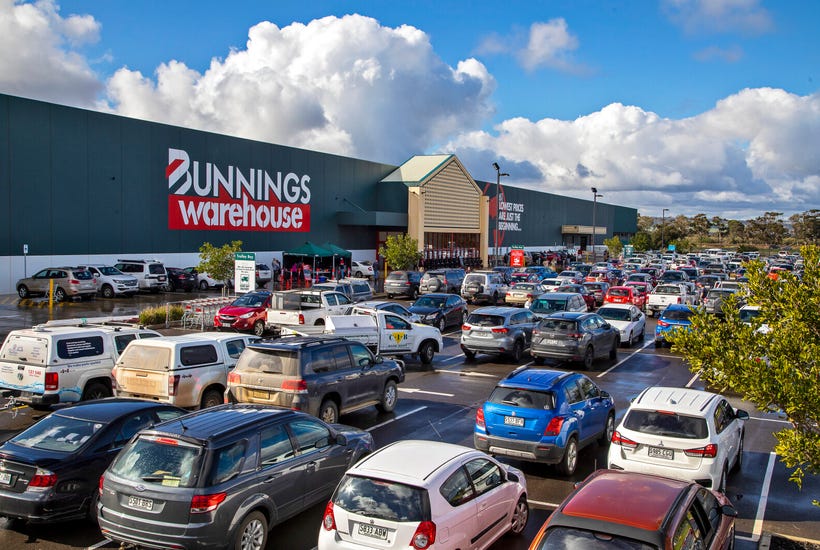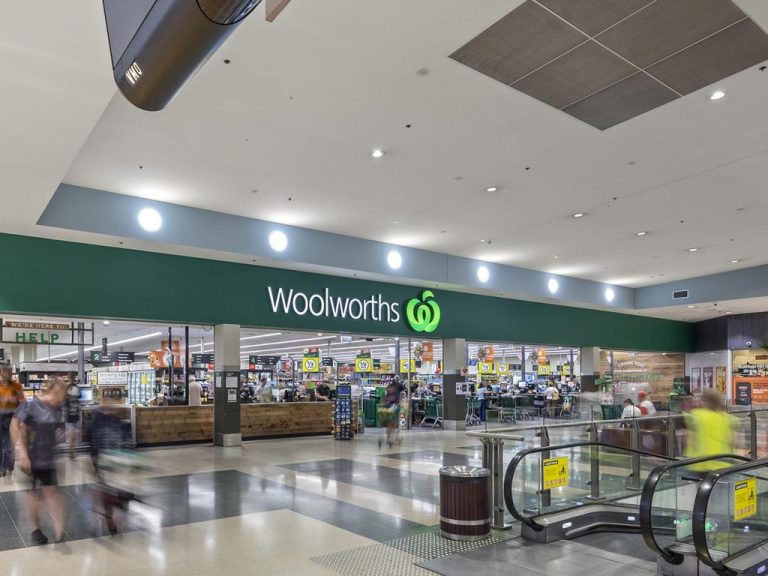COVID boosts demand for Bunnings from large and small investors

Private investors and major property players are increasingly targeting Bunnings properties, as the hardware retailer’s strong performance during the coronavirus pandemic cements its investment appeal.
Several Bunnings warehouses have changed hands this year as large and small investors chase resilient assets with long leases to strong tenants that have performed well during COVID.
REA Group economist Anne Flaherty said the Wesfarmers-owned Bunnings appeared to have been largely immune from the fallout of the COVID-19 pandemic.
“Bunnings really has been the star of Wesfarmers,” Ms Flaherty said.
“They have been an extremely strongly-performing network of stores.”
Bunnings investments were already highly sought-after before the pandemic but COVID increased demand for the warehouses and large format retail in general, on the back of the home improvement trend and housing boom.
“Even before the pandemic, Bunnings was performing really well and when the pandemic happened, we saw demand grow,” Ms Flaherty said.
“People were shopping at Bunnings more than in the past. Part of that was that there were more home renovations happening last year and more people doing their DIY projects.”

People have been shopping more at Bunnings during the pandemic, as they undertake home renovations and DIY projects. Picture: realcommercial.com.au/for-sale
Ms Flaherty said the pandemic had increased the investment risk for commercial property classes such as offices and other parts of the retail sector.
“But if you have property that is tenanted by a business like Bunnings you can be very confident in the quality of that tenant. You can be confident that they’ll be able to continue paying their rent.
“Having said that, opportunities to purchase a building with a tenant like Bunnings in it aren’t opportunities that come up every day.
“When they do, they are in really high demand from investors who may be looking to diversify their portfolios or get a portfolio that has a mixture of assets with good reliable rental income.”
Large investors target Bunnings assets
Institutional groups with a long-time interest in Bunnings have been active buyers of the warehouses during the pandemic.
Property investment management company Charter Hall, which started buying Bunnings stores in 2006, was behind the biggest deal, acquiring a $353 million portfolio of six Bunnings assets in November.
Charter Hall now owns about 60 Bunnings sites after paying $49 million for a Bunnings property in Baldivis, 45km south of Perth, in July.
The landholding, which is leased to Bunnings and pet products retailer PETstock, has a total gross lettable area of 15,443sqm and a site area of 34,000sqm.
Property funds management group Acure Asset Management sold the property six years after purchasing it for $29.25 million, when it was a Masters Home Improvement store.
Acure managing director Angelo Del Borrello said the sale made good sense for investors in Acure’s Hammersley Unit Trust in light of market conditions and historically-low interest rates.
“When Masters exited the market, we were able to negotiate a new lease agreement with Bunnings to come into the space, which was absolutely critical for our investors,” Mr Del Borrello said.
Savills Australia associate director, capital transactions, Barney Dear, who facilitated the off-market transaction, said it had garnered a record yield for Western Australia.
“Generally, we are seeing significant investor appetite for long WALE (weighted average lease expiry) retail assets in WA and nationally,” Mr Dear said.

Only a few of the Bunnings assets sold during COVID have come on the public market. Picture: realcommercial.com.au/sold
Launching the sale of an Adelaide Bunnings in July, Colliers national director of retail investment services James Wilson said 17 freestanding Bunnings Warehouse assets had sold across Australia in the past 18 months for more than $900 million in total. That represented an average price of $47.41 million.
He said the Colliers-managed sale of Bunnings Eastgardens in Sydney for $75 million set the benchmark investment yield nationally at 4.15%.
Property investment manager Newmark Capital now owns six Bunnings properties after buying the Eastgardens store in April – its first warehouse in Sydney. Newmark was also behind a February deal with Bunnings to develop a new $85 million, three-level store in Melbourne’s Preston, due to open in May 2022.
Colliers director (Queensland), retail investment services, Chris Maher said the pandemic had intensified the demand for core, defensive assets and the flight to quality retail assets such as single-tenanted investments with strong covenants.
“The strong transactions recorded for freestanding Bunnings Warehouse assets and proven resilience through COVID-19 is driving continued investor demand, as buyers seek to deploy pent-up capital and take advantage of the low interest rate environment,” Mr Maher said.
Private buyers also chase Bunnings assets
Bunnings investments are rarely offered through a public sale, with Adelaide’s Bunnings Munno Para West only the third to be publicly marketed in Australia this year.
The Colliers agents expect interest in the site will be in the vicinity of $45 million.

This Adelaide Bunnings is expected to sell for about $45 million. Picture: realcommercial.com.au/for-sale
In June, a Melbourne family paid $22.2 million for a newly-opened Bunnings warehouse in Plainland in Queensland, buying it sight unseen.
Burgess Rawson director Billy Holderhead, who managed the Bunnings Plainland sale, said Bunnings’ reputation drew considerable interest from investors due to the fact it was a stable, long-term tenant and a well-performing business.
“Investors are looking for strong tenants that have done well through COVID,” Mr Holderhead said.
“Even though Bunnings is not really an essential service, they were open to trade customers during COVID.
“In Victoria, they were pretty much locked down in the metro area for the best part of five months but still the strength is absolutely unbelievable.”

A Melbourne family paid $22.2 million for a newly-opened Bunnings in Queensland. Picture: realcommercial.com.au/sold
People spending more time at home and doing projects at home translated into strong sales for Bunnings in the half-year to 31 December 2020, when its same-store sales grew by 27.7% and earnings before tax rose almost 36%. Wesfarmers, which also owns Officeworks and the Kmart Group, reports its annual results in late August.
Bunnings stores in Greater Sydney have remained open during its lockdown so customers and tradespeople can access products for emergency repairs and maintenance.
Mr Holderhead said the confidence investors had in businesses like Bunnings was evident in the Plainland auction in June when eight of the 13 bidders were locked down in Melbourne.
“All these guys were stuck in Melbourne and couldn’t get up to look at it, yet they were still bidding,” he said.
“That gives you a sense of the confidence people have in Bunnings. They were going hammer and tongs $20 million and above on something they hadn’t seen before, and these were mostly private families.”
A private investor paid $11 million for a Bunnings in the NSW town of Young in May, in what Colliers said was a rare opportunity to secure one of the popular investments – and at a more affordable price point.

Bunnings Young attracted interest from private investors typically priced out of a new Bunnings investment. Picture: realcommercial.com.au/sold
In July, an offshore private investor paid $9.8 million for a Bunnings in Horsham, 300km north-west of Melbourne. The property was sold off-market by JLL agents on behalf of a consortium of New Zealand-based investors.
The Bunnings and two Coles-anchored shopping centres in regional Victoria sold for almost $80 million in total, with JLL Retail Investments senior director Stuart Taylor saying local and offshore high-net-worth investors were targeting convenience-based retail assets.
“Supermarkets, Bunnings-leased investments and neighbourhood centres are the clear focus of the majority of active purchasers in the market, and this weight of demand is translating to yield compression and increased deal volumes,” Mr Taylor said.
-With reporting from Megan Neil







